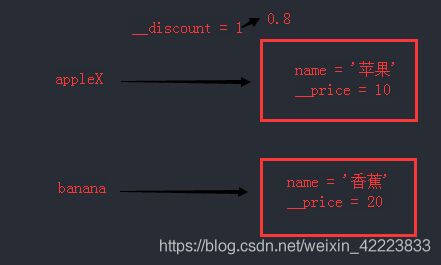- 在Mac M1/M2芯片上完美安装DeepCTR库:避坑指南与实战验证
ku_code_ku
机器学习macos推荐算法推荐系统
让推荐算法在AppleSilicon上全速运行概述作为推荐系统领域的最经常用的明星库,DeepCTR集成了CTR预估、多任务学习等前沿模型实现。但在AppleSilicon架构的Mac设备上,安装过程常因ARM架构适配、依赖库版本冲突等问题受阻。本文通过20+次环境搭建实测,总结出最稳定的安装方案。关键版本说明(2024年验证)组件推荐版本注意事项Python3.10.x向下兼容至3.7,但3.1
- 数据库数值函数详解
web安全工具库
数据库oraclejvm
各类资料学习下载合集https://pan.quark.cn/s/8c91ccb5a474数值函数是数据库中用于处理数值数据的函数,可以用于执行各种数学运算、统计计算等。数值函数在数据分析及处理时非常重要,能够帮助我们进行数据的聚合、计算和转换。在本篇博客中,我们将详细介绍常用的数据库数值函数,并通过Python和SQLite进行示例,帮助您理解和应用这些函数。1.数值函数的基本概念数值函数是用于
- Python中Requests的Cookies的简单使用
北条苒茗殇
python开发语言Requests
概述Python的Requests库中有一个cookies,是用于管理HTTPCookie的工具,可以像字典一样操作Cookie,支持自动处理作用域(域名、路径)和持久化,cookies是一个RequestsCookieJar的类型。一、概念1.作用自动存储服务器返回的Cookie根据请求域名和路径进行自动发送匹配的Cookie支持手动添加、修改、删除Cookie2.RequestsCookieJ
- Pytest基础使用
北条苒茗殇
pytest
概述Pytest是Python里的一个强大的测试框架,灵活易用,可以进行功能,自动化测试使用,可以与Requests,Selenium等进行结合使用,同时可以生成Html的报告。一、Pytest的基本使用在未指定Pytest的配置文件时,会对以下文件进行执行:test_*.py,如:test_1.py*_test.py,如:1_test.py会对以下的类和函数进行执行:类:以Test_开头的类,如
- Visual Studio Code官网下载地址及使用技巧(含常用的拓展插件推荐)
ITCTCSDN
vscodeide编辑器
VisualStudioCode(简称“VSCode”)是Microsoft于2015年4月发布的可运行于MacOS、Windows和Linux之上的跨平台源代码编辑器,它具有对JavaScript,TypeScript和Node.js的内置支持,并具有丰富的其他语言(例如C++,C#,Java,Python,PHP,Go)和运行时(例如.NET和Unity)扩展的生态系统。VisualStudi
- python中rmdir和rmtree的用法
Gin387
python
shutil.rmtree()是Python中shutil模块提供的一个函数,用于递归删除整个目录树(包括子目录和所有文件)。os.rmdir()(只能删除空目录)不同,shutil.rmtree()可以强制删除非空目录importshutil#删除指定目录及其所有内容shutil.rmtree('path/to/directory')
- 构建 Python 插件架构:打造灵活可扩展的模块化应用
全栈探索者chen
pythonpython架构开发语言学习机器学习程序人生插件
构建Python插件架构:打造灵活可扩展的模块化应用前言在现代软件开发中,单一的代码库往往难以满足不断变化的业务需求和多样化的扩展场景。如何设计一个应用,使其既能保持核心功能的稳定,又能轻松集成第三方功能、模块或定制化扩展?答案就是——插件架构。通过插件架构,你可以让应用具备极高的灵活性,支持动态加载、无缝扩展以及解耦维护。本文将深入探讨如何在Python中设计和构建一个插件架构。从核心概念、模块
- 31天Python入门——第11天:挑战一口气把闭包·装饰器讲明白
安然无虞
Python手把手教程python开发语言后端pyqt
你好,我是安然无虞。文章目录1.闭包扩展知识:闭包的自由变量是如何存储的2.装饰器装饰器的应用场景3.补充练习1.闭包闭包是指在一个函数内部定义的函数,并且这个内部函数可以访问外部函数的变量、参数.换句话说,闭包是一个包含了函数及其相关引用环境的组合体.在Python中,当一个函数返回了内部函数的引用时,这个内部函数可以访问并操作外部函数的局部变量,它就创建了一个闭包,即使外部函数已经执行完毕,它
- opencv python rgb转yuv_OpenCV之色彩空间与色彩空间转换
xiao fei
opencvpythonrgb转yuv
python代码:importcv2ascvsrc=cv.imread("test.jpg")cv.namedWindow("rgb",cv.WINDOW_AUTOSIZE)cv.imshow("rgb",src)#RGBtoHSVhsv=cv.cvtColor(src,cv.COLOR_BGR2HSV)cv.imshow("hsv",hsv)#RGBtoYUVyuv=cv.cvtColor(sr
- 【AI大模型】搭建本地大模型GPT-NeoX:详细步骤及常见问题处理
qzw1210
gpt人工智能深度学习
搭建本地大模型GPT-NeoX:详细步骤及常见问题处理GPT-NeoX是一个开源的大型语言模型框架,由EleutherAI开发,可用于训练和部署类似GPT-3的大型语言模型。本指南将详细介绍如何在本地环境中搭建GPT-NeoX,并解决过程中可能遇到的常见问题。1.系统要求1.1硬件要求1.2软件要求操作系统:Linux(推荐Ubuntu20.04或更高版本)CUDA:11.2或更高版本Python
- python 列表倒序输出
小琳爱分享
pythonpython
python列表倒序输出#使用reverseli1=[1,6,4,3,7,9]li2=['a','m','s','g']li1.reverse()li2.reverse()print(li1,li2)#利用list切片li1=[1,6,4,3,7,9]li2=['a','m','s','g']print(li1[::-1])print(li2[::-1])#利用算法进行转换,这里需要用到深层cop
- python怎么输出倒序
hakesashou
python基础知识pythonjava服务器
python怎么输出倒序?下面给大家介绍四种方法:创建测试列表>>> lst = [1,2,3,4,5,6]方法1:>>> lst.reverse() #reverse()反转>>> lst[6, 5, 4, 3, 2, 1]方法2:>>> lst1 = [i for i in reversed(lst)] #reversed只适用于与序列(列表、元组、字符串)>>> lst1[6, 5, 4,
- chatgpt赋能python:Python怎么倒序列表
aijinglingchat
ChatGptpythonchatgpt人工智能计算机
Python怎么倒序列表列表是Python中最常用的数据结构之一,但在实际使用时,有时需要将列表进行倒序排列。Python提供了多种方法来实现这个需求,本文将简要介绍这些方法以及它们的使用场景。方法1:使用reverse()函数使用列表的reverse()方法是Python中最简单直接的方法来倒序列表。该方法会将原列表倒置。lst=[1,2,3,4,5]lst.reverse()print(lst
- “统计视角看世界”专栏阅读引导
赛卡
统计视角看世界信息可视化数据分析
根据文章主题和逻辑关系,我为您设计以下阅读引导方案:1.六西格玛基础2.帕累托图3.直方图4.散点图基础5.散点图高阶6.多变量可视化7.密度图进阶8.回归分析配套文字说明:入门基石(必读)《1.六西格玛遇上Python》→方法论总纲,建议优先精读基础三剑客(可并行)├─《2.帕累托图》→重点数据排序与决策├─《3.直方图》→数据分布核心工具└─《4.散点图》→数据探索第一视角高阶应用链(递进学习
- 自定义mavlink 生成wireshark wlua插件错误(已解决)
JasonComing
问题收集wiresharkwluamavlink
进入正题python3-mpymavlink.tools.mavgen--lang=WLua--wire-protocol=2.0--output=output/developmessage_definitions/v1.0/development.xml编译WLUA的时候遇到一些问题1.ERROR:SCHEMASV:SCHEMAV_CVC_ENUMERATION_VALID3765:0:ERRO
- 吐血整理 python最全习题100道(含答案)持续更新题目,建议收藏!
Bejpse
面试学习路线阿里巴巴python开发语言pycharmredisjava-ee
最近为了提升python水平,在网上找到了python习题,然后根据自己对于python的掌握,整理出来了答案,如果小伙伴们有更好的实现方式,可以下面留言大家一起讨论哦~已知一个字符串为“hello_world_yoyo”,如何得到一个队列[“hello”,”world”,”yoyo”]test=‘hello_world_yoyo’使用split函数,分割字符串,并且将数据转换成列表类型print
- 2024年第五届MathorCup数学应用挑战赛--大数据竞赛思路、代码更新中.....
宇哥预测优化代码学习
1024程序员节
欢迎来到本博客❤️❤️博主优势:博客内容尽量做到思维缜密,逻辑清晰,为了方便读者。⛳️座右铭:行百里者,半于九十。本文目录如下:目录⛳️研赛及概况一、竞赛背景与目的二、组织机构与参赛对象三、竞赛时间与流程四、竞赛要求与规则五、奖项设置与奖励六、研究文档撰写建议七、参考资料与资源1找程序网站推荐2公式编辑器、流程图、论文排版324年研赛资源下载4思路、Python、Matlab代码分享......⛳
- 2024MathorCup数学建模之——MathorCup奖杯”获得者经验思路分享
美赛数学建模
数学建模
一、经验分享1.工具选择:顺手即可。Matlab和Python都是比较主流的选择,二者的应用场合各有不同。Python在数据分析、深度学习方面的优势愈发明显,而Matlab更适合进行物理仿真和数值计算。不过随着Python社区不断发展,其功能也愈发全面与强大,因此我们比较推荐学有余力的情况下可以更早接触Python。2.模型算法:多多益善。不一定要精通所有的算法,但是手上至少要准备一些常用的算法(
- Python 用户账户(创建用户账户)
钢铁男儿
Python从入门到精通pythonsqlite数据库
Web应用程序的核心是让任何用户都能够注册账户并能够使用它,不管用户身处何方。在本章中,你将创建一些表单,让用户能够添加主题和条目,以及编辑既有的条目。你还将学习Django如何防范对基于表单的网页发起的常见攻击,这让你无需花太多时间考虑确保应用程序安全的问题。然后,我们将实现一个用户身份验证系统。你将创建一个注册页面,供用户创建账户,并让有些页面只能供已登录的用户访问。接下来,我们将修改一些视图
- 使用欧拉法数值求解微分方程的 Python 实现
神经网络15044
python深度学习算法python开发语言
编写函数y=Eular(x,h),使用欧拉法数值求解微分方程初值为函数Eular(x,h)中Cx为计算结束时微分方程x的值,h为计算步长再编写脚本,通过调用函数分别以不同步长(例如h=1.0,h=0.5,h=0.25)计算y(3),并分析步长和误差之间的关系。以下是使用欧拉法数值求解微分方程的Python实现。假设我们要求解的微分方程是dydx=f(x,y)\frac{dy}{dx}=f(x,y)
- 使用AirtableLoader轻松加载数据到Python
bavDHAUO
python开发语言
在现代软件开发中,数据的管理与使用非常关键。Airtable作为一种灵活的数据库应用,提供了简便且强大的数据处理方式。而通过使用AirtableLoader这种工具,可以轻松地将Airtable中的数据加载到Python项目中进行处理。技术背景介绍Airtable是一款集电子表格和数据库功能于一体的工具,它以其简单易用、强大的扩展性而受到众多开发者的喜爱。AirtableLoader是一个文档加载
- 【Python工具】Jupyter Notebook常用快捷键
清平乐的技术博客
Python高级应用由浅入深学Pythonjupyteridepython
1.JupyterNotebook的启动与停止环境为Windows10系统首先win+R进入命令提示符cmd,用cd命令切换到工作目录,键入命令jupyternotebook2.JupyterNotebook常用快捷键2.1模式切换当前cell侧边为蓝色时,表示此时为命令模式,按Enter切换为编辑模式当前cell侧边为绿色时,表示此时为编辑模式,按Esc切换为命令模式2.2命令模式快捷键H:显示
- Pytorch深度学习教程_9_nn模块构建神经网络
tRNA做科研
深度学习保姆教程深度学习pytorch神经网络
欢迎来到《深度学习保姆教程》系列的第九篇!在前面的几篇中,我们已经介绍了Python、numpy及pytorch的基本使用,进行了梯度及神经网络的实践并学习了激活函数和激活函数,在上一个教程中我们学习了优化算法。今天,我们将开始使用pytorch构建我们自己的神经网络。欢迎订阅专栏进行系统学习:深度学习保姆教程_tRNA做科研的博客-CSDN博客目录1.理解nn模块:(1)使用nn.Sequent
- Python 单例模式的 5 种实现方式:深入解析与最佳实践
做测试的小薄
测试高阶python单例模式自动化测试测试框架
单例模式(SingletonPattern)是一种经典的设计模式,其核心思想是确保一个类在整个程序运行期间只有一个实例,并提供一个全局访问点。这种模式在许多场景中非常有用,例如全局配置管理、日志记录器、数据库连接池等。然而,Python的灵活性使得实现单例模式有多种方式,每种方法都有其特点和适用场景。本文将详细介绍Python中实现单例模式的5种常见方法,并深入分析它们的优缺点以及适用场景,帮助您
- Python 爬虫实战:舞台剧与演出信息获取
西攻城狮北
python爬虫开发语言
作为一名对文化艺术活动和数据获取感兴趣的内容创作者,我决定利用Python爬虫技术抓取舞台剧与演出信息。这对于文艺爱好者、文化活动组织者以及相关研究人员来说,是一个极具价值的探索。一、项目背景舞台剧和各类演出活动丰富了人们的精神文化生活。许多城市都有专业的演出场馆,如国家大剧院、上海大剧院等,它们会定期发布演出信息。通过爬虫技术,我们可以自动化地获取这些演出信息,方便用户查询和分析。二、技术选型在
- LeetCode剑指offer题目记录4
t.y.Tang
LeetCode记录leetcodepython矩阵
leetcode刷题开始啦,每天记录几道题.目录剑指offer07.重建二叉树题目描述示例思路python改进剑指offer09.用两个栈实现队列题目描述示例思路python剑指offer10-1.斐波那契数列题目描述思路pythonC++剑指offer10-2.青蛙跳台阶问题问题描述思路C++剑指offer07.重建二叉树题目描述输入某二叉树的前序遍历和中序遍历的结果,请构建该二叉树并返回其根节
- 【技巧分享】开发环境配置Python、R、Stata
A线上仓库
python开发语言
自用,看心情更新~版本更新2024-03-131.0版本2024-09-25FIX:1.conda命令ADD:1.python调用r命令2.r系统配置2025-01-22更新VSCode调用Statado文件目录版本更新Python环境配置Cheatsheet基础配置可选:环境配置:conda命令包管理R环境配置基础配置R命令Python调用Method1:`rpy2`Stata环境配置基础配置P
- python实现成语接龙
Camellia 泡泡
笔记python
first_idiom='万事如意'end_str=first_idiom[-1]new_li=[first_idiom]li=['发愤图强','笑容满面','意气风发','强颜欢笑']forindexinrange(len(li)):foriinli:ifend_str==i[0]:new_li.append(i)li.remove(i)end_str=i[-1]breakprint(new_l
- 涛哥聊Python | borb,一个好用的 Python 库,处理 PDF 文件好帮手!
双木的木
python拓展学习python库python开发语言机器学习pdf人工智能深度学习
本文来源公众号“涛哥聊Python”,仅用于学术分享,侵权删,干货满满。原文链接:borb,一个好用的Python库!大家好,今天为大家分享一个好用的Python库-borb。Github地址:https://github.com/jorisschellekens/borbPythonBorb是一个用于处理PDF文件的Python库,它提供了丰富的功能和工具,使得PDF文件的创建、修改和解析变得更
- python—计算学生成绩等级
2111339 彭传月
python
一、打开软件新建窗口输入代码#计算学生成绩等级is_continue='y'whileis_continue=='Y'oris_continue=='y':score=eval(input('请输入学生的成绩:'))ifscore>=90:print('A')elifscore>=80:print('B')elifscore>=70:print('C')elifscore>=60:print('D
- 关于旗正规则引擎规则中的上传和下载问题
何必如此
文件下载压缩jsp文件上传
文件的上传下载都是数据流的输入输出,大致流程都是一样的。
一、文件打包下载
1.文件写入压缩包
string mainPath="D:\upload\"; 下载路径
string tmpfileName=jar.zip; &n
- 【Spark九十九】Spark Streaming的batch interval时间内的数据流转源码分析
bit1129
Stream
以如下代码为例(SocketInputDStream):
Spark Streaming从Socket读取数据的代码是在SocketReceiver的receive方法中,撇开异常情况不谈(Receiver有重连机制,restart方法,默认情况下在Receiver挂了之后,间隔两秒钟重新建立Socket连接),读取到的数据通过调用store(textRead)方法进行存储。数据
- spark master web ui 端口8080被占用解决方法
daizj
8080端口占用sparkmaster web ui
spark master web ui 默认端口为8080,当系统有其它程序也在使用该接口时,启动master时也不会报错,spark自己会改用其它端口,自动端口号加1,但为了可以控制到指定的端口,我们可以自行设置,修改方法:
1、cd SPARK_HOME/sbin
2、vi start-master.sh
3、定位到下面部分
- oracle_执行计划_谓词信息和数据获取
周凡杨
oracle执行计划
oracle_执行计划_谓词信息和数据获取(上)
一:简要说明
在查看执行计划的信息中,经常会看到两个谓词filter和access,它们的区别是什么,理解了这两个词对我们解读Oracle的执行计划信息会有所帮助。
简单说,执行计划如果显示是access,就表示这个谓词条件的值将会影响数据的访问路径(表还是索引),而filter表示谓词条件的值并不会影响数据访问路径,只起到
- spring中datasource配置
g21121
dataSource
datasource配置有很多种,我介绍的一种是采用c3p0的,它的百科地址是:
http://baike.baidu.com/view/920062.htm
<!-- spring加载资源文件 -->
<bean name="propertiesConfig"
class="org.springframework.b
- web报表工具FineReport使用中遇到的常见报错及解决办法(三)
老A不折腾
finereportFAQ报表软件
这里写点抛砖引玉,希望大家能把自己整理的问题及解决方法晾出来,Mark一下,利人利己。
出现问题先搜一下文档上有没有,再看看度娘有没有,再看看论坛有没有。有报错要看日志。下面简单罗列下常见的问题,大多文档上都有提到的。
1、repeated column width is largerthan paper width:
这个看这段话应该是很好理解的。比如做的模板页面宽度只能放
- mysql 用户管理
墙头上一根草
linuxmysqluser
1.新建用户 //登录MYSQL@>mysql -u root -p@>密码//创建用户mysql> insert into mysql.user(Host,User,Password) values(‘localhost’,'jeecn’,password(‘jeecn’));//刷新系统权限表mysql>flush privileges;这样就创建了一个名为:
- 关于使用Spring导致c3p0数据库死锁问题
aijuans
springSpring 入门Spring 实例Spring3Spring 教程
这个问题我实在是为整个 springsource 的员工蒙羞
如果大家使用 spring 控制事务,使用 Open Session In View 模式,
com.mchange.v2.resourcepool.TimeoutException: A client timed out while waiting to acquire a resource from com.mchange.
- 百度词库联想
annan211
百度
<!DOCTYPE html>
<html>
<head>
<meta http-equiv="Content-Type" content="text/html; charset=UTF-8">
<title>RunJS</title&g
- int数据与byte之间的相互转换实现代码
百合不是茶
位移int转bytebyte转int基本数据类型的实现
在BMP文件和文件压缩时需要用到的int与byte转换,现将理解的贴出来;
主要是要理解;位移等概念 http://baihe747.iteye.com/blog/2078029
int转byte;
byte转int;
/**
* 字节转成int,int转成字节
* @author Administrator
*
- 简单模拟实现数据库连接池
bijian1013
javathreadjava多线程简单模拟实现数据库连接池
简单模拟实现数据库连接池
实例1:
package com.bijian.thread;
public class DB {
//private static final int MAX_COUNT = 10;
private static final DB instance = new DB();
private int count = 0;
private i
- 一种基于Weblogic容器的鉴权设计
bijian1013
javaweblogic
服务器对请求的鉴权可以在请求头中加Authorization之类的key,将用户名、密码保存到此key对应的value中,当然对于用户名、密码这种高机密的信息,应该对其进行加砂加密等,最简单的方法如下:
String vuser_id = "weblogic";
String vuse
- 【RPC框架Hessian二】Hessian 对象序列化和反序列化
bit1129
hessian
任何一个对象从一个JVM传输到另一个JVM,都要经过序列化为二进制数据(或者字符串等其他格式,比如JSON),然后在反序列化为Java对象,这最后都是通过二进制的数据在不同的JVM之间传输(一般是通过Socket和二进制的数据传输),本文定义一个比较符合工作中。
1. 定义三个POJO
Person类
package com.tom.hes
- 【Hadoop十四】Hadoop提供的脚本的功能
bit1129
hadoop
1. hadoop-daemon.sh
1.1 启动HDFS
./hadoop-daemon.sh start namenode
./hadoop-daemon.sh start datanode
通过这种逐步启动的方式,比start-all.sh方式少了一个SecondaryNameNode进程,这不影响Hadoop的使用,其实在 Hadoop2.0中,SecondaryNa
- 中国互联网走在“灰度”上
ronin47
管理 灰度
中国互联网走在“灰度”上(转)
文/孕峰
第一次听说灰度这个词,是任正非说新型管理者所需要的素质。第二次听说是来自马化腾。似乎其他人包括马云也用不同的语言说过类似的意思。
灰度这个词所包含的意义和视野是广远的。要理解这个词,可能同样要用“灰度”的心态。灰度的反面,是规规矩矩,清清楚楚,泾渭分明,严谨条理,是决不妥协,不转弯,认死理。黑白分明不是灰度,像彩虹那样
- java-51-输入一个矩阵,按照从外向里以顺时针的顺序依次打印出每一个数字。
bylijinnan
java
public class PrintMatrixClockwisely {
/**
* Q51.输入一个矩阵,按照从外向里以顺时针的顺序依次打印出每一个数字。
例如:如果输入如下矩阵:
1 2 3 4
5 6 7 8
9
- mongoDB 用户管理
开窍的石头
mongoDB用户管理
1:添加用户
第一次设置用户需要进入admin数据库下设置超级用户(use admin)
db.addUsr({user:'useName',pwd:'111111',roles:[readWrite,dbAdmin]});
第一个参数用户的名字
第二个参数
- [游戏与生活]玩暗黑破坏神3的一些问题
comsci
生活
暗黑破坏神3是有史以来最让人激动的游戏。。。。但是有几个问题需要我们注意
玩这个游戏的时间,每天不要超过一个小时,且每次玩游戏最好在白天
结束游戏之后,最好在太阳下面来晒一下身上的暗黑气息,让自己恢复人的生气
&nb
- java 二维数组如何存入数据库
cuiyadll
java
using System;
using System.Linq;
using System.Text;
using System.Windows.Forms;
using System.Xml;
using System.Xml.Serialization;
using System.IO;
namespace WindowsFormsApplication1
{
- 本地事务和全局事务Local Transaction and Global Transaction(JTA)
darrenzhu
javaspringlocalglobaltransaction
Configuring Spring and JTA without full Java EE
http://spring.io/blog/2011/08/15/configuring-spring-and-jta-without-full-java-ee/
Spring doc -Transaction Management
http://docs.spring.io/spri
- Linux命令之alias - 设置命令的别名,让 Linux 命令更简练
dcj3sjt126com
linuxalias
用途说明
设置命令的别名。在linux系统中如果命令太长又不符合用户的习惯,那么我们可以为它指定一个别名。虽然可以为命令建立“链接”解决长文件名的问 题,但对于带命令行参数的命令,链接就无能为力了。而指定别名则可以解决此类所有问题【1】。常用别名来简化ssh登录【见示例三】,使长命令变短,使常 用的长命令行变短,强制执行命令时询问等。
常用参数
格式:alias
格式:ali
- yii2 restful web服务[格式响应]
dcj3sjt126com
PHPyii2
响应格式
当处理一个 RESTful API 请求时, 一个应用程序通常需要如下步骤 来处理响应格式:
确定可能影响响应格式的各种因素, 例如媒介类型, 语言, 版本, 等等。 这个过程也被称为 content negotiation。
资源对象转换为数组, 如在 Resources 部分中所描述的。 通过 [[yii\rest\Serializer]]
- MongoDB索引调优(2)——[十]
eksliang
mongodbMongoDB索引优化
转载请出自出处:http://eksliang.iteye.com/blog/2178555 一、概述
上一篇文档中也说明了,MongoDB的索引几乎与关系型数据库的索引一模一样,优化关系型数据库的技巧通用适合MongoDB,所有这里只讲MongoDB需要注意的地方 二、索引内嵌文档
可以在嵌套文档的键上建立索引,方式与正常
- 当滑动到顶部和底部时,实现Item的分离效果的ListView
gundumw100
android
拉动ListView,Item之间的间距会变大,释放后恢复原样;
package cn.tangdada.tangbang.widget;
import android.annotation.TargetApi;
import android.content.Context;
import android.content.res.TypedArray;
import andr
- 程序员用HTML5制作的爱心树表白动画
ini
JavaScriptjqueryWebhtml5css
体验效果:http://keleyi.com/keleyi/phtml/html5/31.htmHTML代码如下:
<!DOCTYPE html>
<html xmlns="http://www.w3.org/1999/xhtml"><head><meta charset="UTF-8" >
<ti
- 预装windows 8 系统GPT模式的ThinkPad T440改装64位 windows 7旗舰版
kakajw
ThinkPad预装改装windows 7windows 8
该教程具有普遍参考性,特别适用于联想的机器,其他品牌机器的处理过程也大同小异。
该教程是个人多次尝试和总结的结果,实用性强,推荐给需要的人!
缘由
小弟最近入手笔记本ThinkPad T440,但是特别不能习惯笔记本出厂预装的Windows 8系统,而且厂商自作聪明地预装了一堆没用的应用软件,消耗不少的系统资源(本本的内存为4G,系统启动完成时,物理内存占用比
- Nginx学习笔记
mcj8089
nginx
一、安装nginx 1、在nginx官方网站下载一个包,下载地址是:
http://nginx.org/download/nginx-1.4.2.tar.gz
2、WinSCP(ftp上传工
- mongodb 聚合查询每天论坛链接点击次数
qiaolevip
每天进步一点点学习永无止境mongodb纵观千象
/* 18 */
{
"_id" : ObjectId("5596414cbe4d73a327e50274"),
"msgType" : "text",
"sendTime" : ISODate("2015-07-03T08:01:16.000Z"
- java术语(PO/POJO/VO/BO/DAO/DTO)
Luob.
DAOPOJODTOpoVO BO
PO(persistant object) 持久对象
在o/r 映射的时候出现的概念,如果没有o/r映射,就没有这个概念存在了.通常对应数据模型(数据库),本身还有部分业务逻辑的处理.可以看成是与数据库中的表相映射的java对象.最简单的PO就是对应数据库中某个表中的一条记录,多个记录可以用PO的集合.PO中应该不包含任何对数据库的操作.
VO(value object) 值对象
通
- 算法复杂度
Wuaner
Algorithm
Time Complexity & Big-O:
http://stackoverflow.com/questions/487258/plain-english-explanation-of-big-o
http://bigocheatsheet.com/
http://www.sitepoint.com/time-complexity-algorithms/

